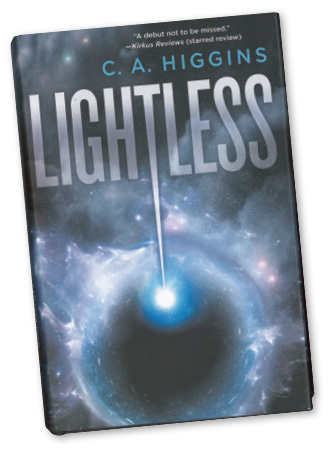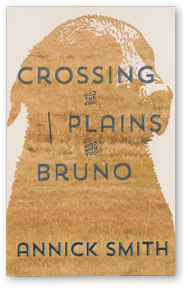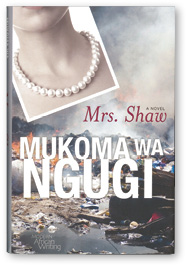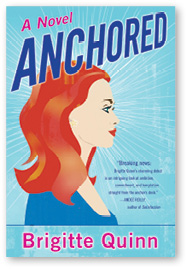 Lightless LightlessC.A. Higgins ’13 In her debut sci-fi novel, former physics major Higgins creates a dystopian future in which a computer scientist must contend with cunning terrorists, officious government functionaries, and a sentient spacecraft whose violent moods threaten everyone on board. All of the action takes place inside this experimental military spaceship, dubbed the Ananke, creating what the New York Times called “a pleasing claustrophobia.”Higgins credits such disparate creative influences as The Usual Suspects and “Battlestar Galactica,” but her physics degree also had an impact—particularly in her choice to name each book section for a different law of thermodynamics. A runner up in the 2013 Dell Magazines Award for Undergraduate Excellence in Science Fiction and Fantasy Writing, Higgins wrote most of Lightless while at Cornell. “The Ananke was made of metal, but men had built her,” she writes. “All things men create have some aspect of humanity in them, for men are incapable of creating the truly alien. And so the Ananke was made of metal, but all her parts were analogous to flesh.”
In her latest memoir, Smith reflects on a two-week road trip with her steadfast canine companion—a chocolate Lab named Bruno—that began as a straightforward journey to collect her 100-year-old mother from an assisted living facility in Chicago and bring her to the family’s beach house on Lake Michigan. But as she and her dog travel, random encounters and familiar settings spark deep reflections of Smith’s past: her Hungarian Jewish roots, her childhood in Chicago, her marriage, the death of her husband, her move West, and her career as a Hollywood producer. “While driving across the vast spaces of the interior West, I often got lost in memory or flights of fancy. Bruno’s presence and his needs forced me to return to the actual,” writes Smith, a founding board member of the Sundance Film Institute. “He reminded me that I, too, am an animal whose existence depends on being alert to the scents and sights and hunger and emotions of the moment.”
Ngugi, an assistant professor of English at Cornell, was short-listed for both the Caine Prize for African Writing and the Penguin Prize for African Writing for the manuscript that ultimately became Mrs. Shaw. His novel centers on the relationships among three exiles forced to make new lives in the United States. Two of them in particular, banished from the same fictional African dictatorship, form a connection underscored by the violent events they both lived through, and complicated by how differently they remember them. “To know who we are, we have to go into the past. We have to find those who made us,” says one of the exiles. “The truth is likea river; to find it we have to go to its source.” A former TV news reporter brings her professional experience to the page in this debut novel about an unseasoned anchor who aspires to Barbara Walters-esque fame. The heroine spends her days at a small-time network reporting on car chases, interviewing obscure local celebrities, and dreaming about how to break into covering real news—until a new male colleague arrives and turns her life upside down. She faces mounting moral dilemmas as competitive tensions give way to chemistry and gets a chance at her big break that may come at the expense of her integrity.
Exploring “the invention of the modern mind,” a psychiatry professor at the Medical College describes how the concept evolved in the seventeenth and eighteenth centuries as a compromise between science and religion. Makari, who previously penned Revolution in Mind: The Creation of Psychoanalysis, contemplates the writings of foremost theorists of the period including Hobbes, Newton, Locke, Diderot, Voltaire, and Kant. “Makari might alienate some readers with the sheer volume of information produced by this thorough approach,” said Publishers Weekly, “yet he conveys that information with flair, humanizing the great thinkers of the past with the vibrant detail of characters in a novel.” To purchase these books and others by Cornellians, or to submit your book for possible mention in Cornell Alumni Magazine, go to the “Cornell Authors” tab at cornellalumnimagazine.com.
|
Authors
New Releases




 Mrs. Shaw
Mrs. Shaw
